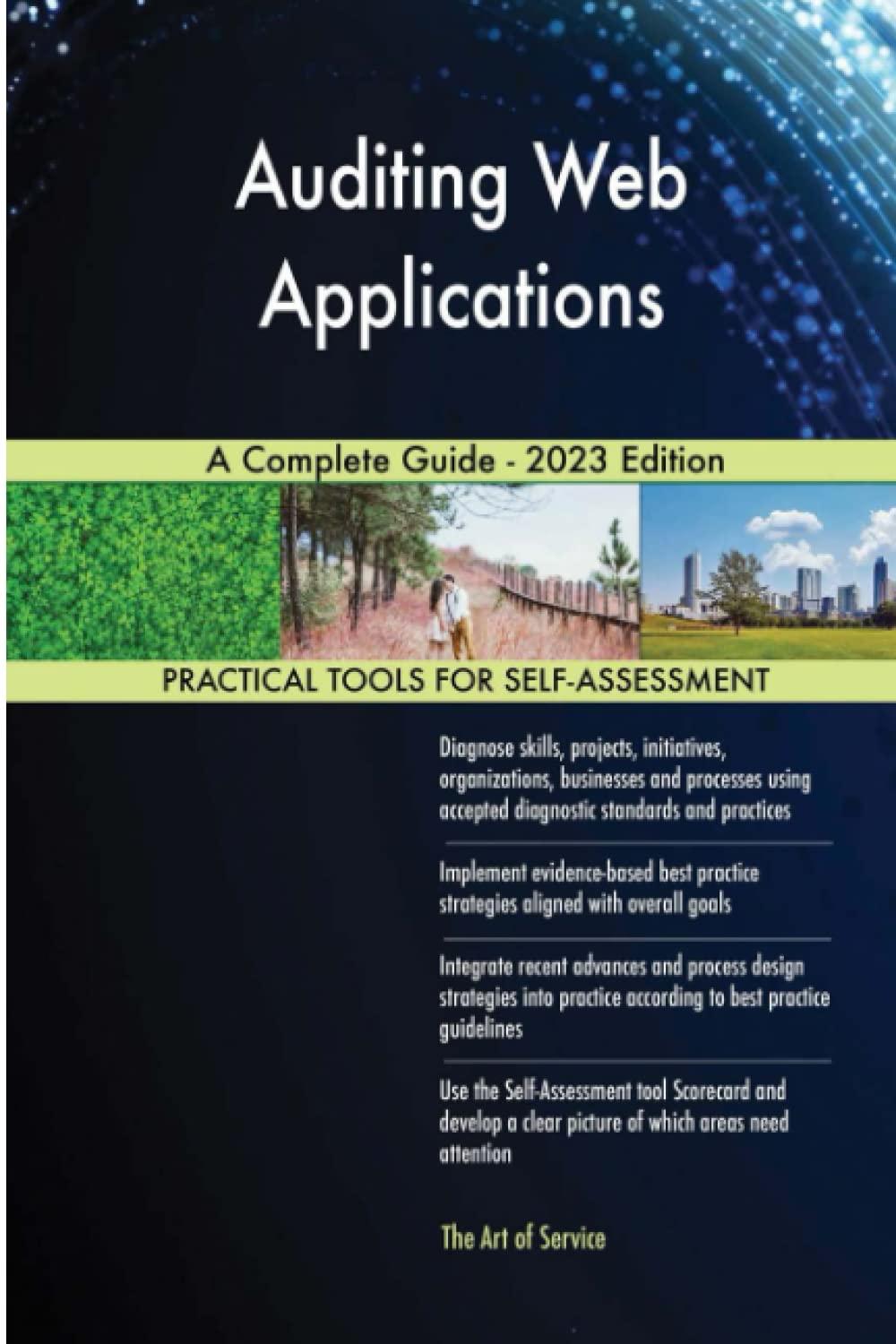Question
Job Order Cost Accounting and Process Cost Accounting. I will provide you with several options or allow you to propose a separate topic to me.
Job Order Cost Accounting and Process Cost Accounting. I will provide you with several options or allow you to propose a separate topic to me.
OPTIONS:
Process Costing
500 cupcakes
100 aprons
100 birdhouses
50 knitted or crocheted dish cloths
Or your choice of a self-selected option
Job Order Costing
Cleaning services a 6-room house (labor and consumable supplies)
Party and set-up for 100 people (including pre-made/purchased food and beverages, rental of equipment/furniture, staffing, etc.)
Mowing, trimming, leaf blowing, etc. landscape services
Car detailing (not JUST a car wash but the whole detailing job with specifics)
Self-selected option
Option A combination of the two accounting systems: Purchase and assembly of gift baskets (a product and a service). 3 to 5 different levels of baskets would be offered.
Another option of your choice (with my pre-approval).
Student Activities:
Students will choose a project from the list above or gain approval of their own idea. They will prepare a recipe or detailed cost chart of ALL raw materials and labor involved in the manufacture/service provision of their project. They must seek and provide details on all the information pertaining to the basis of estimate. (Basis of Estimate is a tool used in the field of project management by which members of the project team, usually estimators, project managers, or cost analysts, calculate the total cost of the project.
Add in all expenses of a project, from labor to materials to administrative costs and other overhead. These calculations formulate a Basis of Estimate which is, when completed, a number that can be used to determine the ability of the firm or company to carry out the project, or used as a tool in competing for a contract bid or otherwise proposing the project to another. (https://en.wikipedia.org/wiki/Basis_of_estimate)
The students will prepare a chart indicating the total cost of making the products or providing the service. They must also calculate the estimated overhead to be applied using a formula decided between the student and the professor. They must provide information explaining how each cost was determined (examples: Internet searches for rental fees for equipment, grocery prices for specific items/ingredients, labor rate charts, consumable supplies (indirect materials) etc.). Students must identify each component and identify it as either Direct Materials (DM), Direct Labor (DL) or Overhead (OH).
Overhead must be further identified as Indirect Materials (IM), Indirect Labor (IL) or other type of overhead (utilities, insurance, repairs, depreciation, property taxes, etc. Although the students will use a Pre-Determined Overhead Rate (POHR) for estimating overhead, it is hoped they will pay special attention to actual overhead which may occur during the production process (or during provision of the service). Since they are probably not actually making a product or providing a service, they will not have an actual overhead amount to enter into the records for comparison against the applied overhead (POHR).
Parameters will be developed to ensure equality among students such as minimum number of ingredients used in production, number of labor components (how many people making a certain rate for the manufacture/provision of service), number of units to be manufactured, number of hours (minimum) necessary for completion of the task, cost of equipment rental if applicable, cost of fuel/gasoline if applicable, source of ingredients/components (where would they buy the raw materials), types of products to be included in gift baskets (range of levels), etc.
Students will prepare a Job Cost Sheet (if they choose to work on a Job Order) or (for Process Cost) a Cost Flow Analysis of the accounts used (Goods/Work in Process; Finished Goods).
Students will present their total cost of manufacturing (or provision of service) on a version of the form below.
| Your Name: |
| ||
| ACC 212 Section (circle one): (001) (003) (036) | |||
|
| |||
| Name of Product or Business:
|
| ||
| Description of Product or Business:
|
| ||
| Cost of Manufacturing
| |||
| Direct Materials |
| ||
| Direct Labor |
| ||
| Overhead |
| ||
| Total Manufacturing Costs |
| ||
| Break Even Point in Units Produced |
| ||
| Break Even Point in Sales Dollars |
| ||
Example
| Your Name: | Your favorite accounting professor | ||
| ACC 212 Section (circle one): (001) (003) (036) | |||
|
| |||
| Name of Product or Business:
| Cupcakes! | ||
| Description of Product or Business:
| Fancy, yummy cupcakes Recipe for 1500 decorated cupcakes. This is how many cupcakes our company makes each month (time period for this manufacturing statement). | ||
| Cost of Manufacturing
| |||
| Direct Materials | Include recipe, ingredients, amounts, cost for total recipe | ||
| Direct Labor | Include time used and personnel (people) and pay rate for each job involved in making cupcakes (scaling/measuring/mixing); baking/cooling; decorating; wrapping) | ||
| Overhead | Rent, utilities (specify each type and cost), insurance, depreciation (equipment, vehicles, etc.), other overhead items. | ||
| Total Manufacturing Costs | Total cost of making all 1500 cupcakes | ||
| Per Unit Cost: | Total cost of making ALL my cupcakes/1500 cupcakes = $X per cupcake | ||
| Break Even Point in Units Produced |
| ||
| Break Even Point in Sales Dollars |
| ||
Step by Step Solution
There are 3 Steps involved in it
Step: 1

Get Instant Access to Expert-Tailored Solutions
See step-by-step solutions with expert insights and AI powered tools for academic success
Step: 2

Step: 3

Ace Your Homework with AI
Get the answers you need in no time with our AI-driven, step-by-step assistance
Get Started


